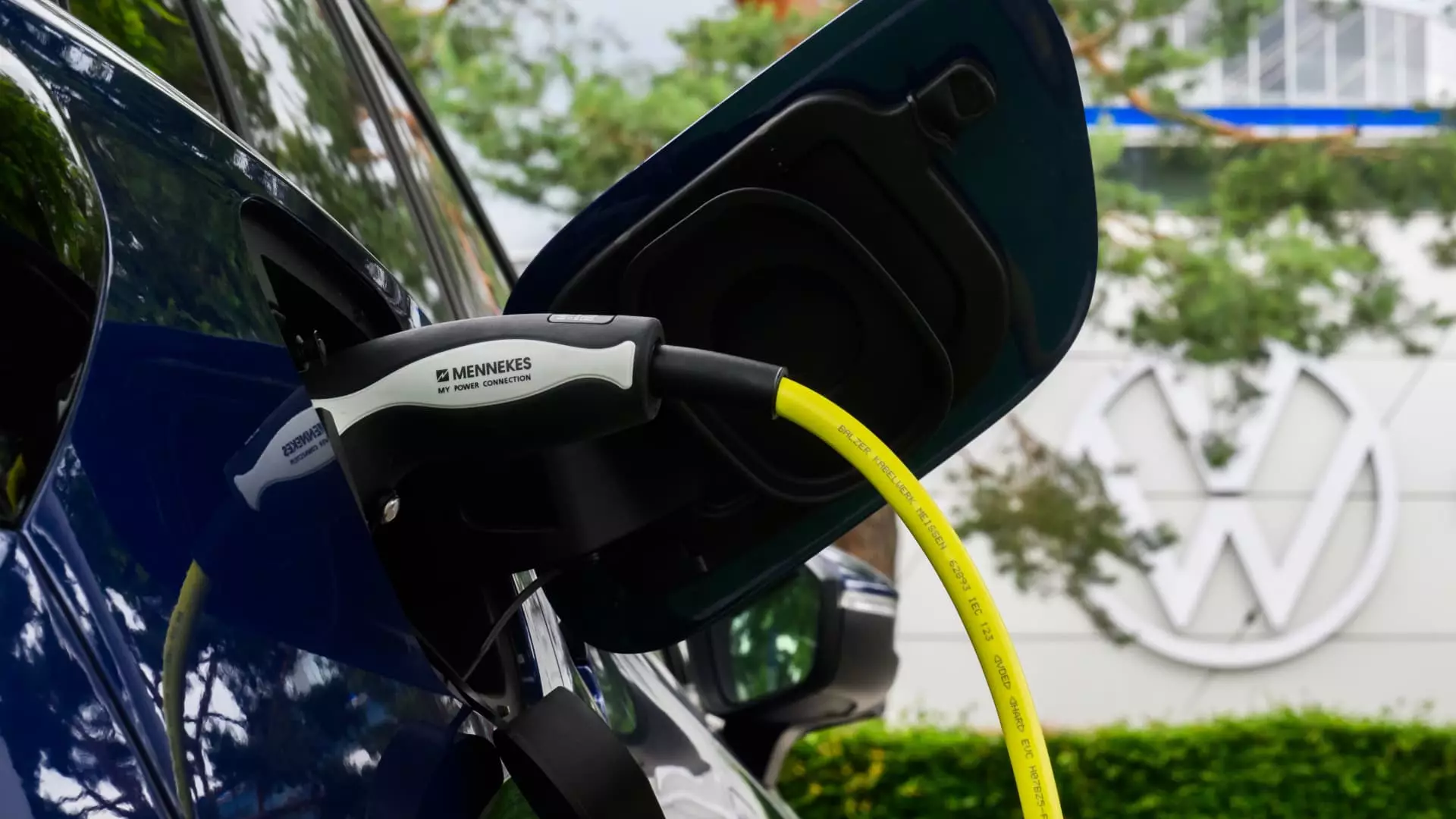European car manufacturers are currently facing a myriad of challenges as they navigate the path towards full electrification. The initial enthusiasm for the complete adoption of electric vehicles (EVs) has been met with a dose of reality, with companies like Volvo Cars adjusting their plans in response to changing market conditions. Aiming for between 90% and 100% of car sales to be fully electric or plug-in hybrid models by 2030, Volvo has had to scale back its ambitious target of selling only EVs by the same year. In a similar move, other manufacturers like Volkswagen, Ford, and Mercedes-Benz Group have also delayed their earlier targets to phase out sales of internal combustion engine vehicles in Europe.
Tim Urquhart, a principal automotive analyst, highlighted the industry-wide trend of manufacturers adjusting their electrification targets due to the realization that continued investment in internal combustion engine technology is crucial for competitiveness. This shift comes as governments in key markets implement measures like mandated targets for sales of battery electric vehicles (BEVs) to incentivize customers. Despite these efforts, there remains a disconnect between consumer demand and government expectations, leading to challenges in achieving widespread adoption of EVs.
Volvo Cars pointed out several obstacles hindering the auto industry’s electrification ambitions, including a slower-than-expected rollout of charging infrastructure, the withdrawal of government incentives in certain markets, and the uncertainty caused by tariffs on EVs in various regions. These challenges underscore the need for stronger and more stable government policies to support the transition away from fossil fuels. Analysts like Urquhart emphasized the need for pragmatism from both regulators and manufacturers to address these issues effectively.
Urquhart noted the difficulties consumers face in transitioning to EVs, given the long-standing reliance on traditional fuel-powered vehicles. The industry’s push for BEVs has encountered resistance from mainstream consumers who are hesitant to change their driving habits and charging routines. Despite these challenges, the inevitability of the shift towards EVs remains clear, with carmakers realizing the importance of not missing out on the trend. While the short-term uncertainties persist, European manufacturers are under pressure to adapt to the changing landscape and maintain profitability in an uncertain environment.
European car giants are grappling with a perfect storm of challenges on their journey towards full electrification. From adjusting electrification targets to addressing infrastructure and policy obstacles, the path to widespread adoption of EVs is fraught with difficulties. Despite these challenges, the industry understands the importance of embracing electric vehicles and staying competitive in the evolving market. While the road ahead may be bumpy, the direction towards full electrification remains clear, signaling a transformative period for the auto industry.



Leave a Reply